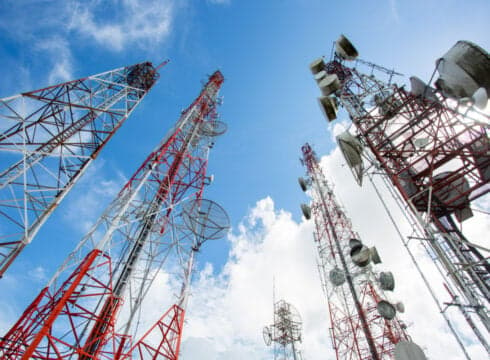Earlier, the telecom department first set a deadline of October 20, which it extended to November 10
The Draft Telecom Bill was introduced to bring reforms in the industries that come under the purview of the DoT
However, the draft bill has attracted criticism and controversy from the get-go
Inc42 Daily Brief
Stay Ahead With Daily News & Analysis on India’s Tech & Startup Economy
The Department of Telecommunications (DoT) has extended the deadline for the submission of public comments on the Draft Telecom Bill 2022 by 10 more days to November 20.
“In response to the requests received from several stakeholders, the Ministry has decided to further extend the last date for receipt of comments till 20th November 2022,” the telecom department said in an official note.
The DoT has extended the date for a second time. The telecom department had first set a deadline of October 20, which it extended to November 10 following industry requests.
Draft Telecom Bill: Controversy Galore
The Draft Telecom Bill was introduced on September 21, 2022, to bring sweeping reforms in the industries that come under the purview of the DoT. Apart from telecom and broadcasting, the draft bill also looks to regulate OTT messaging apps as well.
It seeks to replace three laws – the Indian Telegraph Act, 1885, the Indian Wireless Telegraphy Act, 1933 and the Telegraph Wires (Unlawful Possession) Act, 1950.
However, the draft bill has attracted criticism and controversy from the get-go. Several industry bodies and even the Telecom Regulatory Authority of India (TRAI) have been apprehensive about certain regulations being proposed in the Draft Telecom Bill.
More controversy has been around the DoT gaining sweeping powers over certain aspects, diluting the powers of TRAI in the process. The telecom watchdog took the issue up with the PMO and the DoT over the same. However, the communications minister Ashwini Vaishnaw said the telecom department has addressed TRAI’s issues.
The watchdog also has been reported to be in opposition to regulating OTT communication apps. The DoT reasons that since there has been a surge in the volume of voice calls over these apps, regulation is needed. TRAI cited international regulations, specifically the lack thereof, to not regulate OTT communication apps.
TRAI’s sentiment has been echoed by several international industry bodies. The Asia Internet Coalition (AIC) said the provisions of the Bill will enable the government to disclose messages of individuals, forcing OTT communications apps to break the encryption on surveillance orders.
However, the Cellular Operators Association of India (COAI) has welcomed the move.
“To bring comprehensiveness and avoid any possible ambiguity, COAI is of the considered view that the OTT Communication services need to be defined in the draft Telecom Bill,” the industry body said.
This sentiment has also been backed by cloud telephony players, who feel that WhatsApp, Telegram and others should obtain a licence and that regulations are needed to ensure end-user protection and national security.
{{#name}}{{name}}{{/name}}{{^name}}-{{/name}}
{{#description}}{{description}}...{{/description}}{{^description}}-{{/description}}
Note: We at Inc42 take our ethics very seriously. More information about it can be found here.


